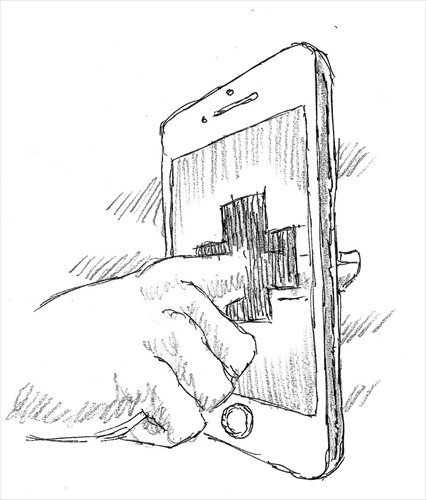COMMENTS / COLUMNISTS
Theranos scandal shows importance of transparency
Troubled US healthcare firm offers cautionary tale for Chinese firms

Illustration: Peter C. Espina/GT
A few months ago, Elizabeth Holmes, founder of US-based healthcare technology firm Theranos, seemed to have the world at her feet. The 31-year old CEO was the world's youngest self-made female billionaire, based on the valuation of her company at $9 billion. Theranos' innovative blood testing kits, which purported to give an accurate readout based on only a fingerprick's worth of blood rather than the four or five vials normally needed for a thorough work-up, were set to "disrupt" the lab testing industry. Her board was crammed with dignitaries like George Schulz and Henry Kissinger, and she was a favorite of the tech magazines.But now Theranos' reputation is crumbling fast. A devastating report in the Wall Street Journal (WSJ) accused the company of using conventional means for 90 percent of its tests, and alleged that the "breakthrough" machines, even if used, produced inaccurate and potentially harmful results.
A flood of other revelations followed; Theranos' former lab head had killed himself, under mysterious circumstances, and the post was now being filled by a part-time dermatologist, rather than a pathologist. Theranos' claimed deals with GlaxoSmithKline and Pfizer were denied by both companies. Holmes made a couple of unconvincing appearances attempting to calm the situation, in which she spouted PR talk and dodged questions. Theranos has promised it will produce the data critics demand showing its technologies work. But it's looking, right now, as though the $400 million it received in venture capital, not to mention that $9 billion valuation, might have been based on, at best, a flawed technology, and at worst something close to a scam.
Analysts have started to ask some hard questions. Why did tech reporters so uncritically repeat Theranos' claims, rather than checking on them? Why were the concerns of doctors - especially pathologists, who have been expressing doubts about Theranos for over a year - largely ignored until the WSJ report? Why was Theranos' board stuffed with politically influential dignitaries and bereft of medical experts? Most worryingly, what does this tell us about applying the Silicon Valley funding model, which values "disruption" and "innovation" above all else, to other sectors? And what percentage of promising firms are built on little more than bluff and promise?
Medical technology, unlike apps, is not easy to judge - though perhaps it should have raised eyebrows that some users were reporting Theranos drawing far more blood than it claimed. Apps are a front-loaded experience; if you use Uber and don't get a driver, or one comes late, that's an obvious put-off. But we're not equipped to judge the accuracy of blood tests or the reliability of heart monitors.
Holmes, and Theranos, spoke the language of Silicon Valley. They talked about putting power in consumers' hands, about breaking down the monopoly of the existing test companies, and about allowing people easy access to their own medical data. But solutions are rarely that easy, and the power imbalances between patients, the "consumers" in this scenario, and doctors are there for a reason.
With rare exceptions, patients don't have the ability to judge their own condition or results. That doesn't mean doctors shouldn't listen to them or help empower their choices. Some people with specific conditions need to monitor their blood levels, and have the experience to do so. But the system had huge potential for false positives, patient panics, and misreadings - even before its inaccuracy was revealed.
The Theranos saga is still being written. But the issues raised have important ramifications for tech firms in China too. China is trying to become a tech pioneer. In some areas, such as online commerce or communications clients, it already is. Alibaba and WeChat are genuine global stand-outs. But it hasn't yet built a culture of transparency, and the elementary data that investors, clients, and regulators in other countries need simply isn't available from many Chinese firms in other areas.
Theranos highlights how important it is for firms to be transparent about what they're doing and what they've really achieved, especially if they deal with health. Private healthcare is a potentially huge industry in China, but one that touches upon painful and sensitive social issues. Doctors in China already have problems with fake peer review and falsified data, as a recent New England Medical Journal article highlighted. There's little trust between doctors and patients, which has caused problems with public health campaigns and violent incidents at hospitals. What trust there is could be badly broken if a Chinese healthcare firm got caught up in a similar scandal.
Chinese regulators, potential investors, and the public need to be careful, to demand openness, and to consider the social and health implications of technologies, not just their profit potential.
The author is an editor with the Global Times. bizopinion@globaltimes.com.cn
